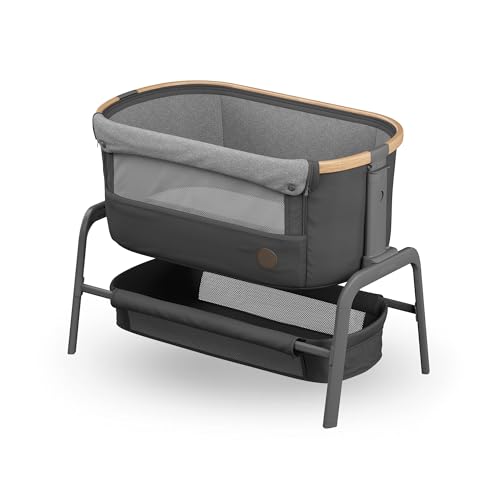Is Your Company Responsible For An Newborn Cot Budget? 12 Tips On How To Spend Your Money
The Essential Guide to Choosing the Right Newborn Cot
When it concerns inviting a brand-new member into the household, making sure a safe and comfortable sleeping environment is critical. A necessary product in any nursery is the newborn cot. With a myriad of options readily available on the marketplace, selecting the right cot can be a difficult job for new moms and dads. This short article aims to provide an informative overview of the elements to think about when selecting a newborn cot, along with the various types available and best practices for cot security.
The Importance of a Newborn Cot
A newborn cot works as a designated sleeping area for babies, promoting better sleep patterns and making sure safety during those tender early months. Not only does a well-chosen cot offer security, but it likewise adds to the total wellness of the kid as they shift from infancy to toddlerhood.
Secret Considerations When Choosing a Cot
When selecting a newborn cot, a number of factors need to be considered to make sure that it will appropriate for both the infant’s needs and the moms and dads’ choices.
| Aspect | Description |
|---|---|
| Safety Standards | Examine that the cot adheres to security regulations set by relevant authorities. |
| Product | Guarantee that the cot is made from non-toxic and durable products. |
| Size | Confirm that the cot fits within the space readily available in the nursery and permits development. |
| Adjustable Mattress Heights | Opt for cots with adjustable mattress heights to accommodate the baby’s development. |
| Maneuverability | Select a cot which is easy to move, particularly if it require to be relocated for cleansing. |
| Design and Aesthetics | Select a cot that matches the general nursery style and fits moms and dads’ design preferences. |
| Budget plan | Consider the price range and guarantee that the cot offers value for the cost. |
Kinds Of Newborn Cots
Moms and dads can select from a number of types of cots, each with its own features and benefits. Below are a few of the most typical types of newborn cots:
-
Standard Cots:

- Traditional, durable style
- Typically, adjustable bed mattress heights
- Ideal for longer-term usage
-
Convertible Cots:
- Can be transformed into a toddler bed or daybed
- Extended use as the child grows
- Frequently features extra safety features
-
Cradle or Bassinet:
- Smaller, portable sleeping choices for babies
- Generally used for the very first couple of months
- Lightweight and easy to move around your house
-
Co-Sleepers:
- Designed to attach firmly to the parents’ bed
- Facilitates breastfeeding during the night
- Keeps the newborn close while keeping different sleeping locations
-
Travel Cots:
- Lightweight, portable, and easy to set up
- Ideal for holidays or journeys
- Typically featured retractable styles for storage
Best Practices for Cot Safety
Join Jobs Fiji WhatsApp Channel
Click the button below to join our WhatsApp channel for updates.
Join NowSafety must be the leading priority when utilizing a newborn cot. Complying with the following standards can develop a secure sleeping environment for the infant:
- Follow Manufacturer Instructions: Always put together the cot according to the manufacturer’s standards to guarantee stability and security.
- Use the Right Mattress: The bed mattress should fit comfortably in the cot without any spaces. It must be firm to minimize the danger of suffocation.
- Prevent Soft Bedding: Keep the sleeping location devoid of soft items, including pillows, blankets, and toys that can posture a suffocation risk.
- Inspect Condition Regularly: Regularly check the cot for any loose or broken parts, and guarantee that the security functions are working effectively.
- Positioning: Place the cot away from windows, blinds, and cables to avoid risks such as entanglement or falls.
Often Asked Questions (FAQs)
-
At what age can I transition my baby from a bassinet to a cot?
- Generally, infants can transition to a cot when they begin to show indications of rolling over or when they outgrow their bassinet, typically around 4-6 months.
-
How can I make sure the cot is safe for my newborn?
- Always pick a cot that fulfills current safety standards, assemble it correctly, and frequently examine it for any wear or tear.
-
What is the perfect mattress firmness for a newborn?
- A company mattress is recommended as it lowers the risk of suffocation and Sudden Infant Death Syndrome (SIDS), promoting safer sleep.
-
How high should the cot mattress be set?
- The mattress ought to be at the greatest position for newborns for easy access and lower as the baby Cots On sale grows and ends up being more mobile.
-
Is it essential to include a bumper pad to the cot?
- No, bumper pads are not suggested as they can position a suffocation or strangulation risk. It’s best to keep the cot totally free of extra bedding.
Picking the right newborn cot is a substantial choice that can affect the safety and comfort of an infant’s sleeping environment. By considering aspects such as cot type, safety standards, mattress firmness, and correct cot practices, parents can make informed choices that add to a peaceful sleeping experience for their newborn. By focusing on safety and comfort, parents can produce a nurturing area that supports their kid’s development and wellness from the very start.
In conclusion, first-time moms and dads ought to equip themselves with knowledge about newborn cots and make thoughtful choices that will serve both their infant and themselves in this hectic yet satisfying journey of being a parent.

